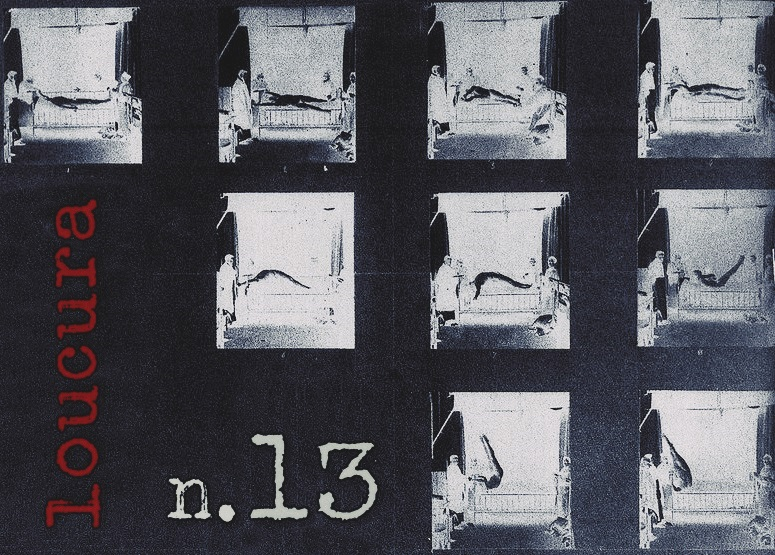MADNESS AND METHOD: THE SYSTEM OF DOCTOR TARR AND PROFESSOR FETHER
DOI:
https://doi.org/10.11606/issn.1984-1124.v0i13p160-171Keywords:
Edgar Allan Poe, Literature, Madness.Abstract
The present study aims to discuss the theme of madness, comparing the narrator’s perspective in “The System of Doctor Tarr and Professor Fether” (1845) and another short stories by Edgar Allan Poe. The analysis illustrates that science in the 19th century aims to remove the fear of the unknown, dominating the natural world and its laws; and that fiction, the presumptive opposite, represents an extension of the same logic under another name. Some writers denied any obligation of loyalty to scientific rationalism and tried to decipher this problem through the dream and the supernatural. Fantastic works of Gothic fiction – Hoffmann’s novels and some of Poe’s stories – illuminate these points. Poe reinterprets the Gothic in the Victorian Age, with an unnamed and often unreliable narrator that insists on his rationality. The comic and grotesque horror result of the psychology of his characters often descended into madness.
Downloads
References
APOSTOL, Silvia Adriana. Le Fantastique Littéraire en France et en Roumanie. Quelques Aspects au XIXe Siécle: Une Rhétorique de La (Dé)Construction? 381 f. Thèse de doctorat. Université Paris-Est École Doctorale Cultures et Sociétés, Université de Piteşti, Faculté des Lettres, 2011.
BEWLEY, Thomas. Madness to Mental Illness: A History of the Royal College of Psychiatrists. RC Psychc Publications, 2008. Disponível em: http://www.rcpsych.ac.uk/files/samplechapter/madnesstomillnessschap.pdf. Acesso em: 13/08/2014.
BOOTH, Wayne C. The Retoric of Fiction. Chicago & London: The University of Chicago Press, 1983.
BOZZETTO, Roger. Folie et littérature fantastique. La Revue des Ressources, dimanche 30 aôut de 2009. Disponível em: http://www.larevuedesressources.org/folie-et-litterature-fantastique,772.html?lang=pt. Acesso em: 09/08/2014.
CAMELIN, Colette. Bovarysme et Tragique. Fabula –LhT, n° 9, Aprés le bovarysme, mars 2012. Disponível em : http://www.fabula.org/lht/9/camelin.html.Acesso em: 06/08/2014.
FARGIONE, Daniela. The Irony of E.A. Poe’s Lunatick Asylum. Academia.edu. Disponível em:
http://www.academia.edu/1755665/_The_Irony_of_E.A._Poes_Lunatick_Asylum_. Acesso em: 11/07/2014.
IEHL, Dominique. Grotesque et horreur chez Poe. In: ______. Le grotesque. Que sais-je? Paris: Presses Universitaires de France, 1997.
LIND, Sidney E. Poe and Mesmerism. In: PMLA, Vol. 62, n° 4, Dec., 1947, p. 1077-1094. JSTOR. North Carolina State University. Disponível em: http://www.jstor.org/stable/459150. Acesso em: 27/06/14.
POE, Edgar Allan. Leonor. Tradução anônima. Disponível em: http://portugues.free-ebooks.net/ebook/Eleonora/pdf/view. Acesso em: 09/08/14a.
______. Histórias Extraordinárias. Tradução de Breno Silveira e outros. São Paulo: Abril Cultural, 1978.
______. O Sistema do Doutor Pixe e do Professor Penna. Trad. Bruno Penteado. REVISTA LITTERIS, São Paulo, nº 2, maio de 2009.
______. Poesia e Prosa. Trad. Oscar Mendes. São Paulo: Ediouro, 2000.
______. Uma estória das Montanhas Ragged. Tradução anônima. Disponível em: www.share-pdf.com/.../allan-poe-contos-de-terror-mis.pdf. Acesso em: 11/08/14b.
QUINN, Arthur Hobson. Edgar Allan Poe: A Critical Biography. Baltimore: The Johns Hopkins University Press, 2011.
______. The Literature of the American People: an historical and critical survey. New York: Appleton-Century-Crofits, Inc., 1951.
REISS, Benjamin. Theaters of Madness: Insane Asylums and Nineteenth-Century American Culture. Chicago: The University of Chicago Press, 2008.
SOVA, Dawn B. Critical companion to Edgar Allan Poe. A Literary Reference to his Life and Work. New York: VB Hermitage, 2007.
WILLIAMS, Michael J. S. A World of Words: Language and Displacement in the Fiction of Edgar Allan Poe. Durham: Duke University Press, 1988.
WILLIS, Martin. Mesmerists, Monsters, and Machines: Science Fiction and the Cultures of Nineteenth Century. Kent/Ohio: Kent State University Press, 2006.
WILSON, Anthony. Shadow and Shelter: The Swamp in the Southern Culture. Mississippi: The University Press of Mississippi, 2006.
ZIMMERMAM, Brett. Frantic Forensic Oratory: Poe’s “Tell-Tale Heart”. In: BLOOM, Harold. (Ed.) Bloom’s Modern Critic Interpretation: Edgar Allan Poe’s the Tell-Tale Heart and Other Stories. New York: Infobase Publishing, 2009.
Downloads
Published
Issue
Section
License
Authors who publish with this journal agree to the following terms:
- Authors retain copyright and grant the journal right of first publication with the work simultaneously licensed under a Creative Commons Attribution License that allows others to share the work with an acknowledgment of the work's authorship and initial publication in this journal.
- Authors can enter into separate, additional contractual arrangements for the non-exclusive distribution of the journal's published version of the work (e.g., post it to an institutional repository or publish it in a book), with an acknowledgment of its initial publication in this journal.
- Authors are permitted and encouraged to post their work online (e.g., in institutional repositories or on their website) before and during the submission process, as it can lead to productive exchanges, as well as earlier and greater citation of published work (See The Effect of Open Access).



